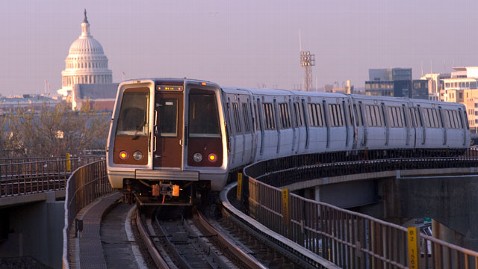Sequester at Home: Welcome to Washington

Bonnie Jo Mount/The Washington Post/Getty Images
Sure, the men and women who voted for sequestration won't take a hit in their paychecks, but nowhere will the federal government's $85 billion budget cuts be felt more acutely than inside the beltway. Visitors to Washington, D.C., and locals alike are already beginning to feel the burn.
Want to go on a tour of the White House? It's not easy. The White House canceled tours for the public last week, claiming it will save $74,000 a week in Secret Service pay.
Now the National Archives are cutting back, too. The Archives' exhibit spaces are usually open to the public from 10 a.m. to 5:30 p.m. each day with hours extended until 7 p.m. March 15 through Labor Day, but this year administrators have canceled those extra hours. They are also doing away with extended hours in research rooms at two locations.
"We don't take these reductions lightly," David S. Ferriero, the Archivist of the United States, said in a statement. "We are working hard to achieve our mission and minimize disruptions to the services we provide to the public."
The city's public transportation system - the Washington Metro-Area Transit Authority - could also take a hit if cuts persist. Metro could lose about $8 million in federal funding, according to spokesman Philip Stewart.
On top of that, with furloughed federal workers staying home instead of riding the rails, WMATA stands to lose millions more. If that's the case, picture the road to recovery from sequester as one long escalator, frozen in place.
"Our capital rebuilding could be at risk, but we will never compromise on safety," Stewart told ABC News in an email Monday. "There are also no plans to scale back our levels of service. Certain non safety-specific projects, however, could be deferred. "
One Washington bulwark that will be spared sequestration cuts is the National Cherry Blossom festival.
Set to start in a little over a week, the celebration is expected to be as spectacular as ever, according to National Park Service spokeswoman Carol Johnson.
Johnson said the Park Service had shifted staffing around and planned far enough in advance that the festival would not be sunk by sequestration.